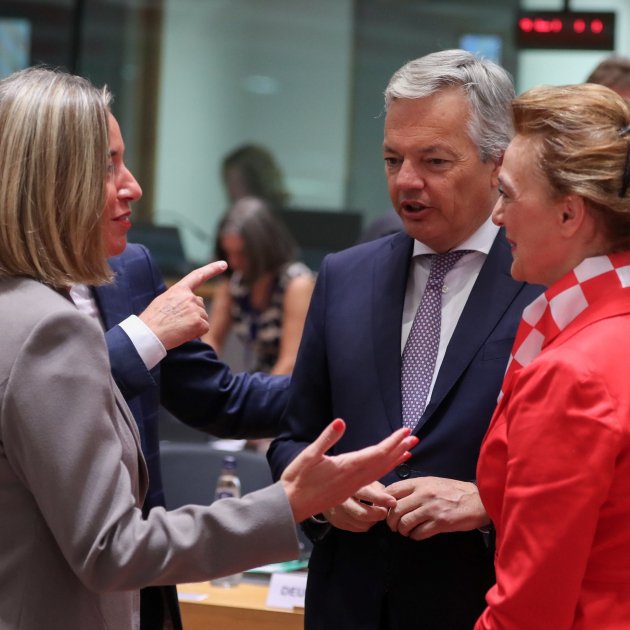Belgium understand that justice is independent and it doesn't plan to interfere with it, even if it should be asked to do so by one of its EU partners: the Spanish government. That was made clear this Monday by the country's foreign minister, Didier Reynders, who said that the courts have to be "left to play their part, independently", whether that be in Spain, Belgium or Germany.
Reynders was responding to a request from his Spanish counterpart, Josep Borrell, for the Belgian government to defend "the immunity" of the Spanish courts and judge Pablo Llarena, who led the investigation in the events surrounding last year's Catalan independence referendum. The request followed a Brussels court summonsing Llarena to testify on 4th September. The summons was in response to a lawsuit presented by president Carles Puigdemont and ministers Toni Comín, Meritxell Serret, Lluís Puig and Clara Ponsatí, claiming the judge had violated the presumption of innocence and had acted without impartiality.
According to the Belgian minister, his government has asked for "the file to be passed on", to obtain more information about the civil lawsuit presented in the country, but defended the independence of the judiciary.
"We've asked for more information about the process which has taken place before the civil courts before adopting any position, but we're trying to work with respect for the independence of the judges of different countries", said Reynders in Brussels, where he met Borrell during the foreign affairs council.
Borrell had asked the Belgian government to defend the immunity of Spanish justice after defence counsel for the Catalan politicians in exile asked for it to appear as an accusing party. Borrell had asked "from state to state that, respecting what is called jure imperii and countries' sovereign power, [the Belgian government] appear not as an accusing party, but in defence of the immunity of Spanish justice".
